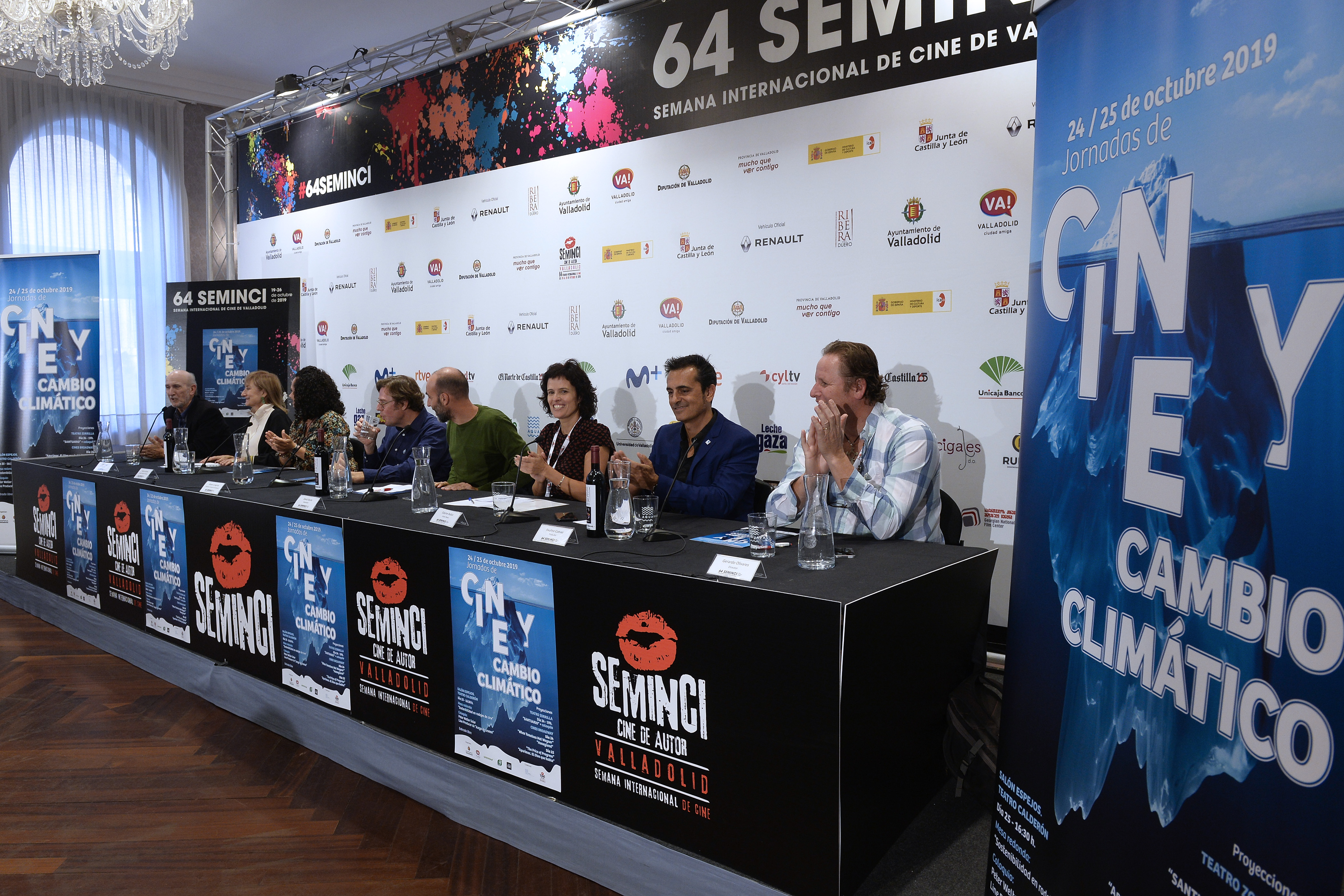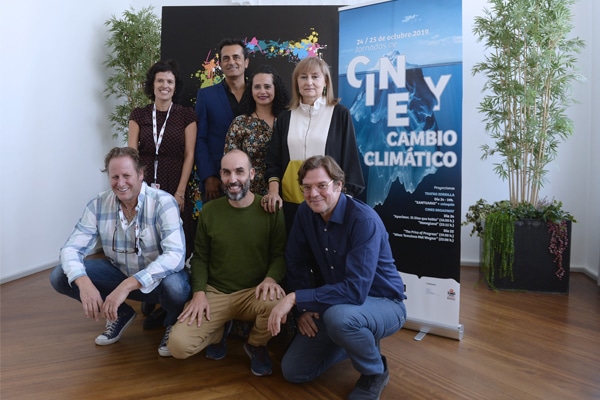
10/25/2019.- The 64 International Film Week in Valladolid, Seminci, has celebrated for a fourth consecutive year the series Cinema & Climate Change. As part of it, it has organised a round table under the title Sustainability in film shootings, moderated by David Baute and in which producers Ana Amigo, Paulino Cuevas and Álvaro Longoria (producer and director of Santuario), filmmaker Gerardo Olivares, ecologic advisor at filmings Yanira Cáceres and Edurne Rubio, representative at Greenpeace, have taken part.
At the start of the debate, David Baute, president of the jury in this section, has announced this years’ winner of the Green Spike, Honeyland, by Ljubo Stefanov and Tamara Kotevska, included in the programme for Cinema & Climate Change.
The producer and representative of the Film Academy, Ana Amigo, has assured that “in the last years, a movement related to cinema has started, aimed at awarding and promoting ecological cinema” and in this sense, “Seminci is a space that worries about climate change.” The producer affirms that what they are most worried about is taking care of water, for what they intend to change plastic bottles for glass containers in all the filmings.
Álvaro Longoria, producer and director of feature film Santuario, assures that “nowadays, on a European level, sustainable filmings are being implemented a lot” and has listed a number of necessary measures, among which are the creation of the position of “green consultant,” incentivising public transport, looking for electric systems which are as efficient as possible, stopping manufacturing plastic decorations and replacing them with recyclable materials, and trying to limit the real effects when creating special effects. All of this “in a way which is economically neutral for the producer.”
“As producers, we have the duty of investigating in which aspects we are not being very efficient to become aware and act accordingly,” producer Paulino Cuevas has added. He also has shown interest in creating a list of film providers who are environmentally aware.
Gerardo Olivares, director of films such as El faro de las orcas and Entre lobos, feature films set in nature, also participated in the debate. “Almost all my films have been shot at protected areas. These are places in which filming is very complicated, but it is necessary. We always need to be conscious of where we are and when we leave everything needs to be the way it was before we came.”
Lastly, Edurne Rubio has highlighted the importance of films to transmit the message of helping nature. “Considering the climate emergency situation we are in, for Greenpeace, it’s important to work hand in hand with the cinema industry to achieve a ‘green planet’.” In this sense, Rubio affirms that Greenpeace is very conscious of the power of image to raise awareness and that is why they work with the world of cinema for their campaigns.



























![Logo Foro Cultural de Austria Madrid[1]](https://www.seminci.com/wp-content/uploads/2024/09/Logo-Foro-Cultural-de-Austria-Madrid1-300x76.jpg)








